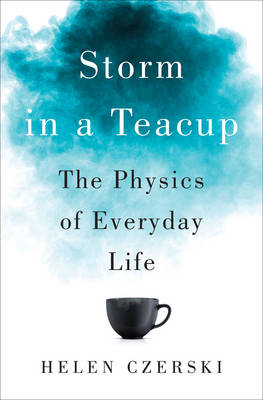Reviewed by MurderByDeath on
Reading updates
- Started reading
- 20 June, 2017: Finished reading
- 20 June, 2017: Reviewed

Take a look up at the stars on a clear night and you get a sense that the universe is vast and untouchable, full of mysteries beyond comprehension. But did you know that the key to unveiling the secrets of the cosmos is as close as the nearest toaster?
Our home here on Earth is messy, mutable, and full of humdrum things that we touch and modify without much thought every day. But these familiar surroundings are just the place to look if you're interested in what makes the universe tick. In Storm in a Teacup, Helen Czerski provides the tools to alter the way we see everything around us by linking ordinary objects and occurrences, like popcorn popping, coffee stains, and fridge magnets, to big ideas like climate change, the energy crisis, or innovative medical testing. She guides us through the principles of gases ("Explosions in the kitchen are generally considered a bad idea. But just occasionally a small one can produce something delicious"); gravity (drop some raisins in a bottle of carbonated lemonade and watch the whoosh of bubbles and the dancing raisins at the bottom bumping into each other); size (Czerski explains the action of the water molecules that cause the crime-scene stain left by a puddle of dried coffee); and time (why it takes so long for ketchup to come out of a bottle).
Along the way, she provides answers to vexing questions: How does water travel from the roots of a redwood tree to its crown? How do ducks keep their feet warm when walking on ice? Why does milk, when added to tea, look like billowing storm clouds? In an engaging voice at once warm and witty, Czerski shares her stunning breadth of knowledge to lift the veil of familiarity from the ordinary. You may never look at your toaster the same way.